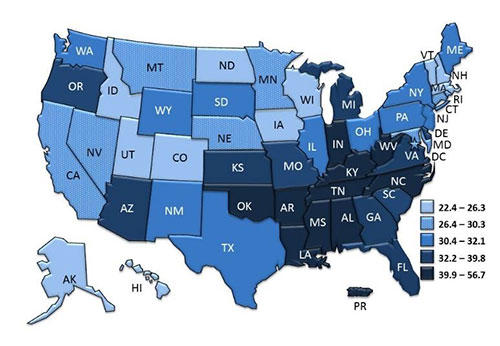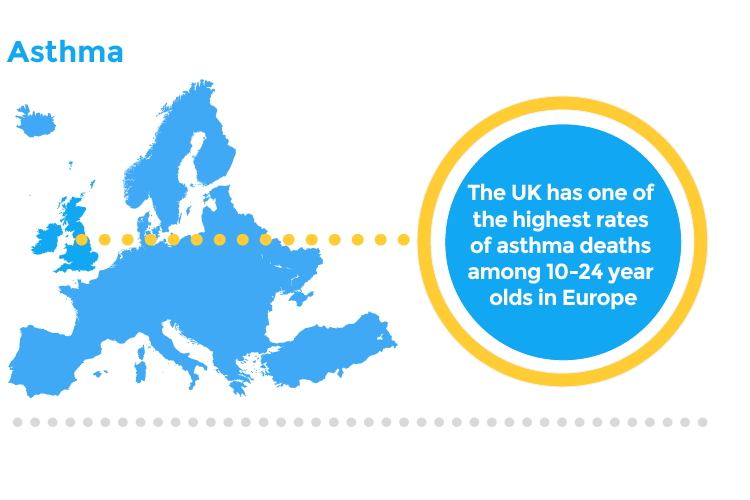Asthma
-
What is Asthma?
Asthma is a long-term inflammatory disease of the airways of the lungs. It is characterized by variable and recurring symptoms, reversible airflow obstruction, and easily triggered bronchospasms. Symptoms include episodes of wheezing, coughing, chest tightness, and shortness of breath. Asthma is thought to be caused by a combination of genetic and environmental factors.
Environmental factors include exposure to air pollution and allergens. Other potential triggers include medications such as aspirin and beta blockers. Diagnosis is usually based on the pattern of symptoms, response to therapy over time, and spirometry lung function testing. Asthma is classified according to the frequency of symptoms, forced expiratory volume in one second (FEV1), and peak expiratory flow rate. It may also be classified as atopic or non-atopic, where atopy refers to a predisposition toward developing a type 1 hypersensitivity reaction.
-
Solutions in the USA
The EPA's recent proposal to clean up coal-fired power plants, for example, has prevented 120,000 cases of aggravated asthma every year. These are benefits that make people healthier and save us money.
Solutions in the UK
UK found that from March to August 2020 there was a significant reduction in asthma exacerbations among patients treated solely in general practice when compared with the previous four years (−0.244 episodes per person per year; P=0.000). But no significant difference was seen in exacerbations that needed a hospital visit or admission.


-
Statistics in the USA
People who suffer from asthma often say an attack feels like breathing through a pool of water or with a pillow covering their face. Unfortunately, millions of Americans know all too well what that's like. In the United States, asthma is a bona fide public health epidemic: 17 million adults and 7 million children suffer from the disease. Every year, US society pays in excess of $53 billion to treat it. Millions of asthmatics, including hundreds of thousands of kids, make visits to the emergency room for medical attention. And in thousands of severe cases, people die.
Statistics in the UK
Researchers used the Optimum Patient Care database, which collates medical records from general practices from around the UK, to study exacerbations among over 100 000 patients in England who had at least one such event from January 2016 to August 2020. During that time there were 278 996 exacerbations, most of which (229 058; 82%) were managed in primary care

